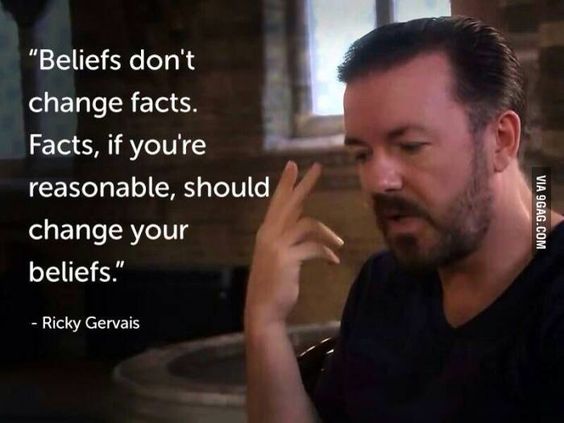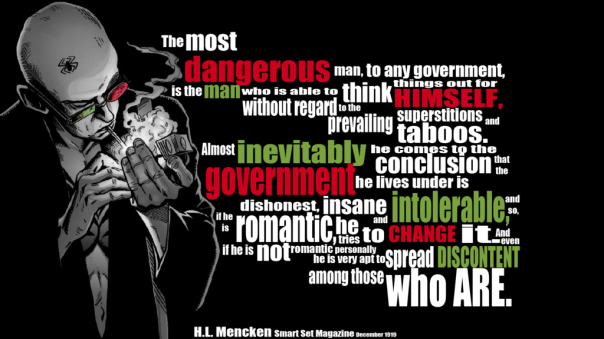It’s been a while since I blogged and a lot has happened, from signing a publishing deal for a short piece coming out next summer to moving four times (once internationally). I want to cover a lot with this blog post. But time is finite, so I’m going to keep it relatively short.
To begin with, let me open with an absolutely true (and thus not appropriate for work) story, and build to a religious studies critique of sensitive bipartisan political controversies (a topic that will no doubt have my few readers either unsubscribe or attempt to douse me in gasoline before starting a flame war).
One week ago, I got to sit in on Warren Ellis giving a talk as part of the book tour for his new novel, Normal.

If you’re one of those unfortunate souls who is unfamiliar with Warren’s work, then I’ll what you need to know is he’s a futurist best known for writing comics like Transmetropolitan, which successfully predicted the 3D printer, Google Glasses, and our current Presidency. He also writes about things like drug-addicted kitchen appliances, protagonists who add dog urine to their coffee, and among his more famous characters are Apollo and Midnighter—two superheroes who answer the question of “what if Batman and Superman finally got serious about their romantic relationship?” So, with that in mind, it should come as no surprise how the interview went.

Among the first questions asked was the following: “How fucked are we?”
Now, this is where many futurists might tell you about problems and options, and different trajectories of the future. But here’s Warren, sitting in front of us, having just read some passages from his book on the lives of futurists, and he just stares into the void as he laughs maniacally. The answer, or the gist of it, was we as a country, and as a species, are pretty fucked.
Reason given varied, from climate change to human rights violations.
But I want to address a different reasons—one all over the news, but which I have a different take on, a take tied to Heathenry and religious studies as a whole.
Except here I come to the part of my blog where I always delete and rewrite it. This isn’t a blog about politics, and I want to keep it that way (I take stands for what I believe in pretty much everywhere else I post on the web). So the issue I address isn’t one of right or left, but which exists across American ideologies, and seems deep-seeded within the human condition. It is, in fact, not a normal political issue, but a religious studies phenomenon.
I am referring to a phenomenon called unverifiable personal gnosis, or UPG.
UPG is personal religious experience an individual or group has that feels divine and possibly even magical in nature, but which cannot be verified one way or another. This can range from a person going into an ecstatic state and speaking in tongues to the shamanistic out-of-body journey quest to a prophetic dream one has. If, for example, Odin Alfather visited me in my dreams and proclaimed me the Heathen Pope, and said I must wear a tall hat with spiky horns as Pope of All Midgard, that might be an example of UPG (it would also probably demonstrate a complete ignorance of Odin, Heathenry, the Pope, and all manner of historical headgear). My hypothetical dream might feel real to me on the most profound of levels, but it sure wouldn’t give me any divine right to force my truth on others.

I have had actual moments of UPG that are important to me and have dramatically impacted my life. In college, for example, I climbed Mount Olympos, bringing an offering of wine and gyros, and as I gave the offering, I felt like I communed with the Twelve Gods of Olympos. I’ve had similar experiences at important sites throughout Greece, Japan, and Iceland. These experiences were powerful emotional moments for me and many of them dramatically impacted the course of my life. But they are my experiences, and not something I could ever use to tell others how to use.
Because part of Unverifiable Personal Gnoses is that they’re personal, and thus not relevant to anyone who didn’t personally have them.
So why do I bring this up? Well, UPG has an uncanny ability to appear in politics. Every time someone says God told them to run for President, for example, they’re saying that they had a case of UPG (which again, is only true for their personal truth), though in this case I’m pretty sure 12 out of 10 times they’re lying (and no, I didn’t get the math wrong. I just REALLY don’t trust anyone who says their god wants them to rule over others).
Of late, it’s come out in how people relate to facts. Sure, we’ve got easy examples with fake news and such, but that’s not what I’m talking about.
Personal beliefs are increasingly being used as though they were facts. And I won’t knock someone for their personal beliefs (okay, I won’t do it for most beliefs. I have limits).
But personal truths are not greater than facts. Period.

And we’ve forgotten that it seems. A great example right now is that comment Scottie Nell Hughes, who said “there’s no such thing, unfortunately, anymore, as facts.”
The problem seems to be that increasingly, people aren’t interested in things that they disagree with. Thus, if you don’t believe something, it must not be true. IE., you are putting your personal truth ahead of facts.

Which, when it comes to voting and recent policies being developed, is essentially political UPG.
Sadly, I don’t have any solutions to fix this. I can observe that when people let their beliefs, rather than facts, become the system by which they rule, we get events like the Crusades, the Spanish Inquisition, and the rise of Jihadist groups in the Middle East. It’s not an original phenomenon. But it has always been a regrettable one, and seldom ends well.
To conclude, I want to bring this back around to Warren Ellis. Warren’s most famous comic is probably Transmetropolitan, a piece I alluded to earlier about a Hunter S. Thompson-inspired gonzo journalist living in a post-cyberpunk society, in which said journalist (named Spider Jerusalem) uses cynicism, a wide array of mind-enhancing drugs, and the truth to do the kind of journalism that breaks through institutionalized corruption and changes lives. Spider isn’t a particularly moral character by most people’s standards. Or a particularly stable one. Or likable. But he values the truth. And so, as I value the truth too, let me end by leaving a picture of Spider with text about the importance of truth:

Wait, no! Not that quote.
This one:

The truth matters. And that includes personal truths. But right now, we as a society desperately need to separate personal truths from facts and start to value the latter a lot more. And for those who won’t, well, that’s what the Chair leg of Truth is for.